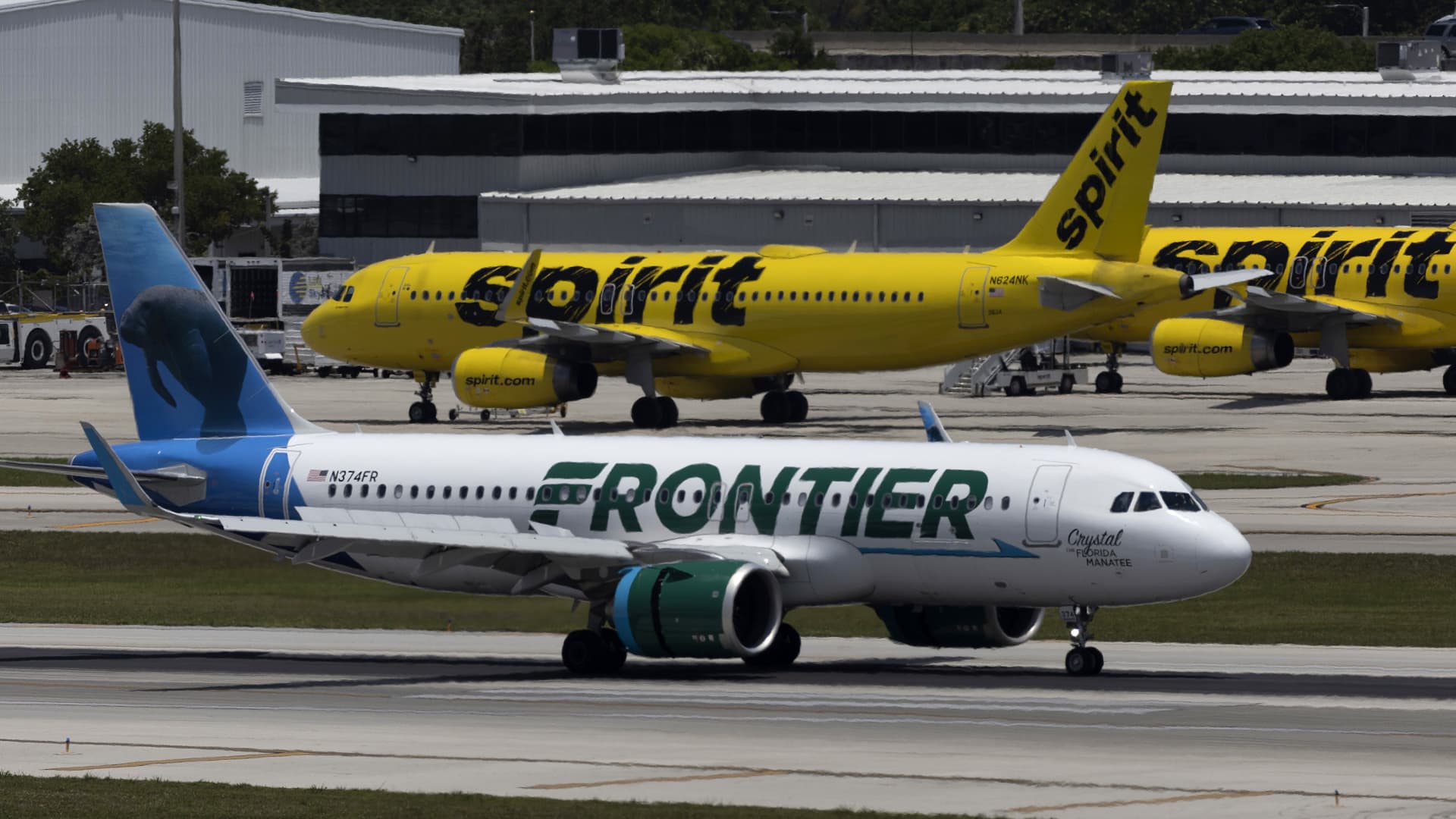Frontier Airlines Revives Merger Talks with Spirit: What’s at Stake?
In a surprising turn of events, Frontier Airlines has reignited discussions about a potential merger with Spirit Airlines, raising significant questions about the future of budget travel in the United States. This renewed proposal comes after previous attempts to combine the two low-cost carriers fell through, prompting analysts and industry insiders to examine the implications for consumers and the broader airline sector.
The Context of the Merger Talks
Frontier Airlines and Spirit Airlines have long been recognized as key players in the ultra-low-cost airline market. Both carriers focus on providing budget-conscious travelers with no-frills service, offering a range of low base fares and charging for additional services—such as seat selection, baggage, and onboard refreshments. However, the landscape of the airline industry is rapidly changing, and the competitive pressures have prompted these discussions to resurface.
The initial merger talks between Frontier and Spirit began in 2021 but were ultimately abandoned as regulatory scrutiny and market dynamics shifted. Now, with the airline industry still in recovery mode post-pandemic, both airlines see an opportunity to strengthen their positions through consolidation. The recent discussions come at a time when travelers are increasingly looking for budget options, raising the stakes for both airlines.
What’s at Stake for Consumers?
With the potential merger of Frontier Airlines and Spirit, consumers could see both positive and negative impacts on their travel experiences.
Potential Benefits
- Increased Route Options: A merger could lead to a more extensive network of routes. Travelers might benefit from additional destinations and more competitive pricing.
- Enhanced Frequency: Combining the two airlines could lead to more frequent flights on popular routes, offering travelers greater flexibility in scheduling.
- Improved Loyalty Programs: A merger might enable the creation of a more robust loyalty program, merging the best elements of both airlines’ frequent flyer initiatives.
Possible Drawbacks
- Less Competition: A merger could reduce competition in the ultra-low-cost segment, potentially leading to higher fares in the long run.
- Service Quality Concerns: Mergers often result in service standardization, which could mean fewer options for customers who prefer one airline over the other.
- Job Losses: Mergers typically lead to workforce consolidations, which can result in job losses, a concern for employees and their communities.
The Regulatory Landscape
One of the most significant hurdles that Frontier Airlines and Spirit must navigate is the regulatory landscape. The U.S. Department of Justice (DOJ) has become increasingly vigilant about mergers in the airline industry, having blocked several proposed consolidations in recent years. The DOJ’s primary concern is that further consolidation could stifle competition and lead to higher fares for consumers.
As the talks progress, both airlines will need to present a compelling case to regulators, demonstrating that the merger would not harm competition but instead foster a more competitive environment. This could involve highlighting potential efficiencies, increased service offerings, and overall benefits to consumers.
Industry Expert Opinions
Industry analysts and experts have varied opinions regarding the potential merger of Frontier and Spirit. Some argue that it could be a strategic move in an environment increasingly dominated by larger airlines like American, Delta, and United. Others caution that the merger may not yield the expected benefits and could, in fact, harm the budget travel segment.
“In theory, combining fleets and resources could lead to lower operational costs, which might be passed on to consumers,” says aviation analyst Jane Doe. “However, history shows that mergers often complicate operations and can lead to higher prices if competition diminishes.”
The Future of Budget Travel
The revival of merger talks between Frontier Airlines and Spirit Airlines is a critical moment for the future of budget travel in the U.S. As travelers increasingly seek affordable options, the ability of these airlines to maintain low fares while merging their operations will be closely scrutinized.
The travel landscape is being reshaped not only by economic factors but also by changing consumer preferences. The pandemic has led many travelers to prioritize safety, flexibility, and value for money. Whether a merger can successfully address these evolving needs remains to be seen.
Conclusion
As Frontier Airlines revives merger talks with Spirit, the implications for the airline industry and consumers are profound. The potential benefits of increased route options and improved services must be weighed against the risks of reduced competition and potential fare increases. With regulatory scrutiny looming, both airlines face the challenge of justifying their merger to regulators and consumers alike.
The coming months will be pivotal in determining whether this merger will proceed or if history will repeat itself with another failed attempt. For consumers, the stakes are high as the future of budget travel hangs in the balance. The outcome of these discussions could redefine the competitive landscape of the airline industry, making it a development worth watching closely.
See more Business Focus Insider Team

